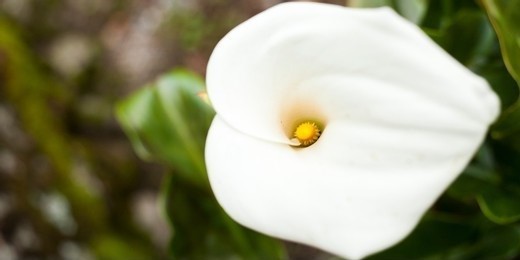Zantedeschia Plant Tissue Culture
The genus Zantedeschia of the Araceae family is popular for its brilliant colors and elegant forms and is recognized as the "flower star" of the 21st century, with great potential for market development.

However, the conventional propagation of Zantedeschia plants is mainly carried out by the sowing method and the parthenogenesis method. The sowing method has a long cycle, a small reproduction coefficient, and a large variation, which makes it difficult to maintain the original good traits. The meristem method is generally carried out only during the dormant period, and small tubers are taken and planted for flowering in the following year, which also takes a long time and has a small reproduction coefficient, so these two propagation methods are far from meeting the needs of production.
Tissue culture service
Lifeasible uses tissue culture for breeding and rapid propagation of Zantedeschia plants, which has the advantages of high reproduction coefficient, short reproduction period, and annual production. Therefore, we will select suitable culture conditions and culture methods when conducting tissue culture of Zantedeschia plants, thus providing services for rapid propagation research of Zantedeschia plants.
The main Zantedeschia spp. for which we perform tissue culture
- Zantedeschia aethiopic
- Zantedeschia hybrid
- Zantedeschia elliottian
- Zabatadechia rehmannii
- Zabatadechia jucunda
- Zabatadechia pentlandi
-
Zabatadechia albomacuIata
Lifeasible can provide high-quality tissue culture services for the above and many more Zantedeschia plant species. Whether you are looking to conduct varietal research, germplasm improvement, or want to establish a supply chain for mass production, we can meet your needs.
There are multiple possible pathways for in vitro morphogenesis in Zantedeschia plants, which are strongly influenced by genotype. At present, Lifeasible often does the indirect pathway of morphogenesis, which means we produce healing tissue first through explants such as leaves, petioles, tubers, etc., and somatic embryos are formed on the surface of the healing tissue, then secondary embryos occur at a high frequency around the primary embryo or expanded primary embryo mass, after which we dissociate the somatic embryos and culture them separately to finally obtain complete regenerated plants.
You want to sign a confidentiality agreement.
You have a specific plant species for your experimental needs.
You have a reliable and relevant cooperation project to discuss.
You are very interested in our project or have any questions.
You need an updated and detailed quotation.
For research or industrial use.



